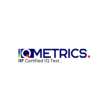Explained: The Evolution of IQ Testing Over the Decades
Evolution of IQ test

The Evolution of IQ Testing Over the Decades
If there's one measure that's fascinated scientists, psychologists, and society at large, it's intelligence. And the primary tool for quantifying this has been the IQ test. Over the decades, the very landscape of IQ testing has undergone a remarkable evolution, shaping our understanding of intelligence, its measurements, and implications. Let's embark on a journey through time, exploring the profound changes and advancements in IQ testing that have reshaped how we perceive cognitive abilities.
The Genesis of IQ Testing: A Historical Perspective
In the late 19th century, French psychologist Alfred Binet laid the groundwork for what would become the modern IQ test. His objective was pragmatic: to identify children needing educational assistance. Binet's initial test assessed cognitive abilities such as attention, memory, and problem-solving, birthing the concept of mental age—a pivotal leap in measuring intelligence.
From Binet to Stanford-Binet: Pioneering Innovations
The Binet-Simon Scale, refined and revised by Lewis Terman at Stanford University, culminated in the Stanford-Binet Intelligence Scales. Terman's adaptations introduced the Intelligence Quotient (IQ), a standardized scoring system that compared mental age to chronological age, revolutionizing the assessment of intelligence.
IQ Testing Goes Mainstream: Cultural Impact and Criticism
The widespread adoption of IQ tests brought both acclaim and criticism. While hailed for their predictive power in academic success and identifying cognitive impairments, these tests faced intense scrutiny for cultural biases and limited scope in assessing diverse forms of intelligence.
Modern Advances: Beyond IQ Scores
The evolution of IQ testing hasn't stagnated. Contemporary advancements acknowledge the multifaceted nature of intelligence. The emergence of multiple intelligences theory by Howard Gardner expanded our understanding, recognizing various cognitive strengths beyond the confines of traditional IQ assessments.
The Digital Age and IQ Testing: Technology's Influence
The digital era brought new dimensions to IQ testing. Online assessments, artificial intelligence, and big data analytics transformed the testing landscape. Adaptive testing methodologies tailored assessments to individual abilities, fostering more accurate evaluations.
The Future of IQ Testing: Embracing Diversity and Ethical Considerations
Looking ahead, the future of IQ testing lies in addressing its limitations and embracing diversity. Efforts to create culturally fair assessments that encompass a broader spectrum of intelligence are gaining traction. Researchers are exploring novel methods, such as dynamic assessment, which focuses on learning potential rather than static abilities.
Ethical considerations are paramount.
As technology evolves, the ethical implications of AI-driven assessments and data privacy concerns demand vigilant scrutiny. Striking a balance between innovation and ethical responsibility remains pivotal in shaping the next phase of IQ testing.
Practical Applications and Implications
Beyond academia, IQ testing has permeated various spheres. From employment screenings to clinical settings, these assessments influence decisions with far-reaching consequences. Understanding their nuances and limitations is imperative to ensure fair and just practices.
Empowering Individuals Beyond Scores
It's essential to remind ourselves that IQ scores are not definitive labels. They don't encapsulate the entirety of an individual's capabilities, talents, or potential. Embracing a broader understanding of intelligence encourages a more inclusive and supportive environment, nurturing diverse strengths and talents.
In conclusion, the evolution of IQ testing has been a narrative of innovation, controversies, and adaptations. From Binet's rudimentary framework to contemporary multi-dimensional assessments, these tests have shaped our understanding of intelligence. Yet, the journey continues, with ongoing efforts to refine methodologies, eliminate biases, and embrace a more holistic view of human cognitive abilities.
Understanding the evolution of IQ testing offers insights not just into intelligence assessment but into the dynamic interplay between science, culture, and human potential. As we navigate the complexities of measuring intelligence, the journey promises continued growth and transformation in our understanding of the human mind.
About the Creator
IQ Metrics
IQMetrics.org is a comprehensive platform offering insightful resources on IQ testing, assessments, and understanding intelligence metrics.
http://iqmetrics.org






Comments
There are no comments for this story
Be the first to respond and start the conversation.